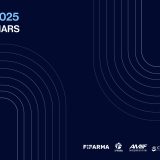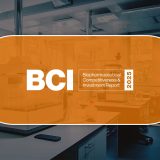Webinar Summary: Innovative Approaches to the Implementation of Regulatory Reliance
Webinar Summary: Innovative Approaches to the Implementation of Regulatory Reliance
Overview
El 8 de mayo de 2024, IFPMA y FIFARMA organizaron un webinar titulado “Enfoques Innovadores para la Implementación del Reliance Regulatorio”. La sesión fue parte de la iniciativa en curso “Mes del Reliance“, que tiene como objetivo compartir casos y estrategias exitosas para promover el regulatory in regulatory systems across Latin America. The webinar attracted over 300 participants, reflecting a strong regional interest in advancing innovating regulatory practices.
Key Highlights
- Welcoming Remarks:
- The session opened with a welcome by Yaneth Giha, Executive Director of FIFARMA, who highlighted the participation of over 300 professionals in the event. The aim was to explore how reliance regulatory can be leveraged to enhance healthcare ecosystems and improve patient access to medications across the Latin America region.
- Presentations:
- Janice Bernat Director, Scientific and Regulatory Affairs Director of IFPMA introduced the concept of regulatory reliance, showcasing how it can streamline procedures and foster trust between national regulatory authorities. Using the World Health Organization's Good Reliance Practices as a reference, she illustrated the spectrum of regulatory and its potential to improve regulatory efficiency and trust.
- Lodovico Samuele Paganini, Scientific Officer Stakeholder Engagement Swissmedic, Swiss Agency for Therapeutic Products, presented Swissmedic’s approach to collaboration, regulatory and work sharing. He detailed their participation in the Access Consortium, which allows simultaneous reach to a large population by sharing assessment responsibilities among member agencies. This approach, he noted, saves resources and enhances expertise sharing.
- Jorge Azar of AstraZeneca: Discussed practical tools to implement reliance, emphasizing the importance of product sameness and the effective use of assessment reports. He highlighted how regional variations like climatic differences can be addressed within reliance frameworks without compromising product quality.
- Panel Discussion:
- The panel, moderated by Sergio Cavallero of IFPMA, focused on the opportunities and challenges for implementing reliance in Latin America. Discussions touched on the need for collaborative efforts, harmonization, and building trust between regulators and the regulated industry.
- Key points from the panel included the benefits of participating in collaborative efforts like the Access Consortium and the potential for Latin America to learn from such models to enhance their regulatory systems.
- Closing Remarks:
- The webinar concluded with a reminder of the ongoing commitment to strengthening regulatory systems and promoting reliance mechanisms. Participants were invited to the next session, which focused on post-registration changes, indicating the continuation of efforts to enhance regulatory practices.
Key Takeaways
- Reliance as a Strategy: Regulatory reliance is emerging as a vital strategy to ensure efficient resource use and to foster international trust and cooperation.
- Collaborative Models: Examples like the Access Consortium demonstrate how collaborative models can significantly reduce the workload on individual regulatory agencies while maintaining high standards.
- Product Sameness and Assessments: The importance of maintaining product sameness across different regions and leveraging assessment reports was emphasized as a way to streamline approvals without compromising safety or efficacy.
- Future Scenarios: The discussions pointed towards greater harmonization and the adoption of reliance models that are tailored to regional needs and capacities.
This webinar provided valuable insights into how regulatory reliance is being advanced and the potential pathways for its broader application across Latin America. The discussions highlighted both the opportunities and the complexities involved in implementing such frameworks effectively.


